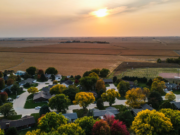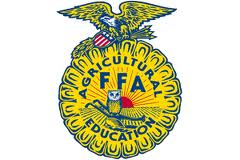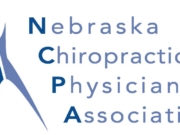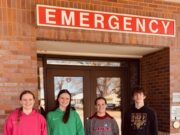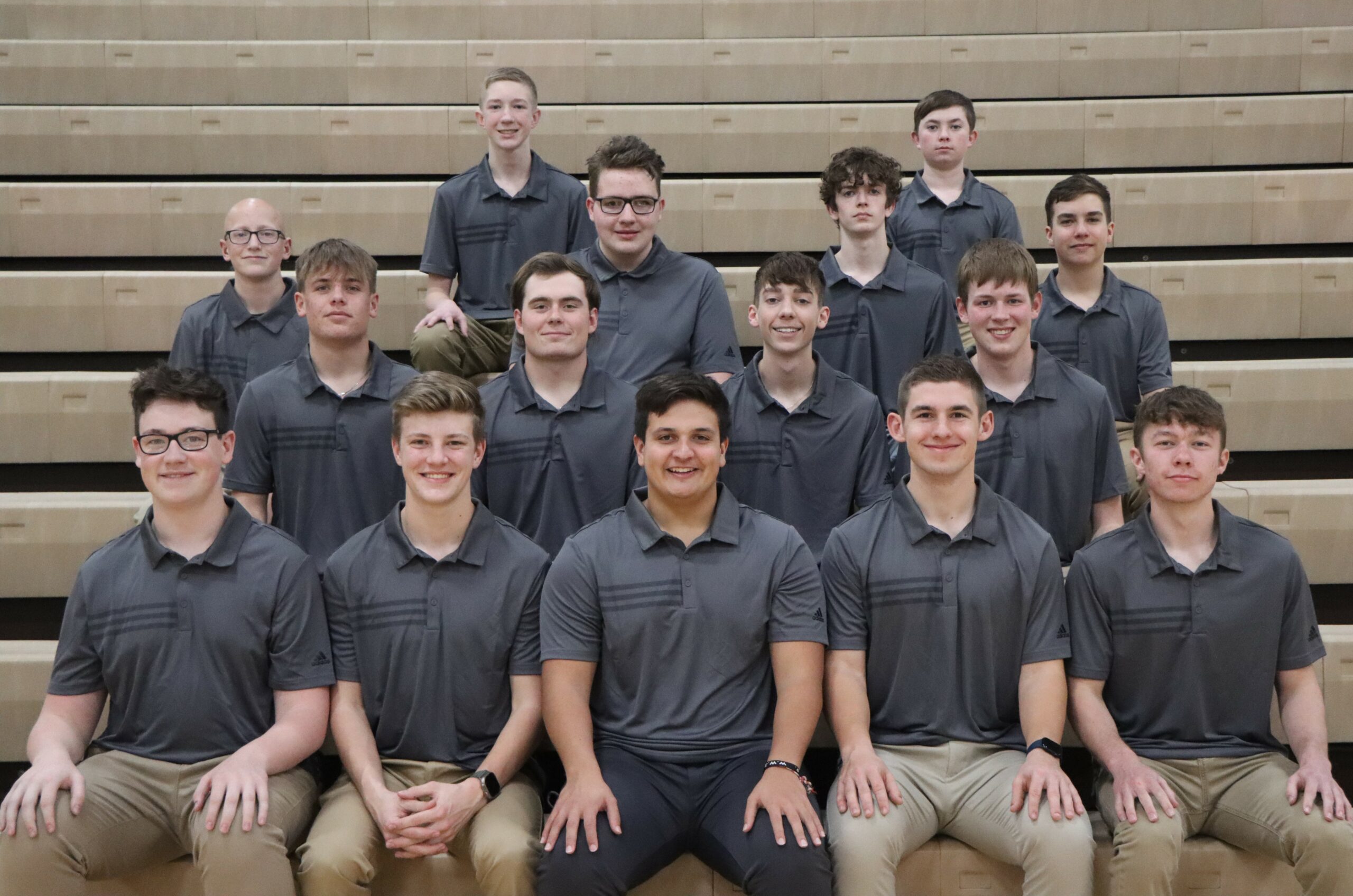Jenny’s REESourcesÂ
UPCOMING EVENTS:
Jan. 26:Â Nebraska Grain Sorghum Symposium, Grand Island
Jan. 31: Â Farmers/Ranchers Cow-Calf College, 10 a.m.-3:30 p.m., USMARC near Clay Center, RSVPÂ (402) 759-3712
Jan. 31:Â Pesticide Training, 9:30 a.m. and 1:30 p.m., Fairgrounds Central City,smelvin1@unl.edu
Feb. 1:Â Pesticide Training, 9am, Adams Co. Fairgrounds, Hastings, ron.seymour@unl.edu
Feb. 1:Â Pesticide Training, 9am, Lutheran Church Fellowship Hall, Wilber, rpryor1@unl.edu
Feb. 1-2:Â Nebraska Ag Technologies Association (NeATA), Nebraska Innovation Campus
Feb. 1-2:Â KZ-100 Farm and Life Expo, Columbus
**NOTE Date Change: Feb. 2: Land Application Training, York Extension Office. RSVP tojrees2@unl.edu or 402-362-5508
Feb. 2:Â Pesticide Training, 1:30 p.m., Senior Center, Kenesaw, ron.seymour@unl.edu
Feb. 3:Â Pesticide Training, 9am, St. Joseph Fellowship Hall, Friend, rpryor1@unl.edu
Feb. 6:Â Pesticide Training, 9am, Hebron Activity Center (downtown), jrees2@unl.edu
Feb. 6:Â Pesticide Training, 2pm, Community Center, Nelson, jrees2@unl.edu
Feb. 7:Â Pesticide Training, 9am, 4-H Building in York, jrees2@unl.edu 402-362-5508
Feb. 7:Â Pesticide Training, 2pm, 4-H Building in York, jrees2@unl.edu 402-362-5508
Feb. 7:Â Pesticide Training, 1:30 and 6:30 p.m., Hruska Library, David City, mrethwisch2@unl.edu
Feb. 7:Â Pesticide Training, 1:30 and 6:30 p.m., Ag Building Fairgrounds, Aurora,smelvin1@unl.edu
Feb. 8:Â LBNRD Nitrogen Training, 9am, Hebron Community Center, 402-364-2145
Feb. 8:Â UBBNRD Nitrogen Training, 1:30 p.m., Holthus Convention Center, 402-362-6601
Feb. 9:Â Pesticide Training, 9 am, Hall Co. Extension, Grand Island,
Feb. 9:Â Pesticide Training, 1:30 and 6:30 p.m., Fairgrounds Central City, smelvin1@unl.edu
Feb. 9:Â Pesticide Training, 6:30 p.m., Community Center, Blue Hill, ron.seymour@unl.edu
Feb. 12-14:Â Great Plains Fruit and Vegetable Growers Conference, Missouri Western State University, St Joseph, MO
Feb. 13:Â Pesticide Training, 9am, Community Center, Nelson jrees2@unl.edu
Feb. 13:Â Pesticide Training, 6:30pm, Fairgrounds in Clay Center, jrees2@unl.edu 402-762-3644
Feb. 14:Â Hamilton County Ag Day, Fairgrounds, Aurora
Feb. 14: Pesticide Training, 1:30 p.m., Dick’s Place, Lawrence, ron.seymour@unl.edu
Feb. 15:Â Pesticide Training, 9am, Harvest Hall Fairgrounds Seward, jrees2@unl.edu
Feb. 15:Â Pesticide Training, 9 am, Hall Co. Extension, Grand Island
Feb. 15:Â Pesticide Training, 9:30 a.m. and 1:30 p.m., Fairgrounds, Aurora,mrethwisch2@unl.edu
Feb. 15:Â Chemigation, 1 p.m., Hall Co. Extension Office, Grand Island, troy.ingram@unl.edu
Feb. 15:Â Pesticide Training, 2pm, Harvest Hall Fairgrounds Seward, jrees2@unl.edu
Feb. 15: Pesticide Training, 6:30 p.m., Saline Center Hall, Western, rpryor1@unl.edu
Feb. 16:Â LBNRD Nitrogen Training, 1:30 p.m., Fairgrounds in Clay Center 402-364-2145
Feb. 16:Â Pesticide Training, 9 a.m. and 1:30 p.m., Fairgrounds Geneva, bvandewalle2@unl.edu
Feb. 17:Â Pesticide Training, 9am, DeWitt Community Center, DeWitt, rpryor1@unl.edu
Feb. 20:Â Nebraska On-Farm Research Update, ARDC near Mead, http://cropwatch.unl.edu/farmresearch
Feb. 21:Â Pesticide Training, 9 a.m. and 1:30 p.m., Fillmore Co. Fairgrounds, Geneva,bvandewalle2@unl.edu
Feb. 21:Â Pesticide Training, 9 a.m., Webster Co. Fairgrounds, Bladen, ron.seymour@unl.edu
Feb. 21:Â Chemigation, 2 p.m., Franklin Co. Fairgrounds, ron.seymour@unl.edu
Feb. 22:Â Farmers/Ranchers College:Â Managing for Difficult Times, 9:30 a.m.-3:00 p.m., Fairgrounds in Geneva, RSVPÂ (402) 759-3712
Feb. 22:Â Pesticide Training, 1:00 p.m., Firehall Meeting Room, Tobias, rpryor1@unl.edu
Feb. 23-24:Â Women in Agriculture Conference, Holiday Inn Kearney, http://wia.unl.edu
Feb. 27:Â Nebraska On-Farm Research Update, Hall Co. Extension Office, Grand Island,http://cropwatch.unl.edu/farmresearch
Feb. 27:Â Farmers/Ranchers College:Â Tips and Tricks for Women in Ag, 6:00 p.m., Lazy Horse Winery in Ohiowa, RSVPÂ (402) 759-3712
Feb. 28:Â LBNRD Nitrogen Training, 9am, Shickley Community Center 402-364-2145
Feb. 28:Â Pesticide Training, 1:30 p.m., Fairgrounds Osceola, mrethwisch2@unl.edu
Feb. 28:Â Beef Profitability Meeting, 10am, Fairgrounds, Osceola
Mar. 1:Â Chemigation, 1 p.m., 4-H Building, York, smelvin1@unl.edu
Mar. 1:Â Chemigation, 1 pm, Pinnacle Bank, Columbus, anygren2@unl.edu
Mar. 2:Â Pesticide Training, 9am, United Church of Christ, Crete, rpyror1@unl.edu
Mar. 2:Â Pesticide Training, 1:30 p.m., Ag Building Fairgrounds, Aurora, smelvin1@unl.edu
Mar. 2:Â Pesticide Training, 6 p.m., Bruning Opera House, Bruning, bvandewalle2@unl.edu
Mar. 6:Â Pesticide Training, 2pm, Harvest Hall Fairgrounds Seward, jrees2@unl.edu
Mar. 6:Â Pesticide Training, 6:30pm, 4-H Building Fairgrounds York, jrees2@unl.edu 402-362-5508
Mar. 8:Â Pesticide Training, 9:30 a.m. and 1:30 p.m., Fairgrounds Osceola, mrethwisch2@unl.edu
Mar. 9:Â Pesticide Training, 9 am, Hall Co. Extension, Grand Island
Mar. 9:Â Pesticide Training, 9:30 a.m. and 6:30 p.m., Hruska Library, David City,mrethwisch2@unl.edu
Mar. 16:Â Chemigation, 1:30 p.m., Adams County Fairgrounds, Hastings, ron.seymour@unl.edu
Mar. 22:Â Pesticide Training, 1:30 and 6:30 p.m., Adams Co. Fairgrounds, Hastings,ron.seymour@unl.edu
Mar. 23:Â Pesticide Training, 9 am, Hall Co. Extension, Grand Island
Apr. 11:Â Pesticide Training, 1:30 and 6:30 p.m., Hruska Library, David City,mrethwisch2@unl.edu
Master Gardener Training: Tuesday evenings 6-9 p.m. from February 7-March 21 at York and Clay County Extension Offices. Please RSVP to jrees2@unl.edu or 402-362-5508 for attending in York or Deanna Peshek at 402-762-3644 to attend in Clay.
Farm Finance Clinic Sites and Dates To sign up for a clinic or to get more information, call Michelle at the Nebraska Farm Hotline at 1-800-464-0258.
Tree Care After the Ice: Last week’s ice led to hazardous travel conditions, tree limb breakage, and most likely some beautiful pictures for display at county fairs this year! Nicole Stoner, Extension horticulturalist shares some thoughts regarding ice effects on trees. “Many tree branches broke after the weight of the ice from the last storm proved to be too much. The best management practice for helping a tree that has broken branches due to snow and ice would be to go out and trim those branches to make them a clean cut rather than a jagged cut. Leaving a break rather than having a clean cut will prevent the tree from naturally healing the wound and this opening will lead to decay in the tree. This is much more damaging to the tree so it is best to prune the tree between the break and the bark collar or hire a professional to do this for you. If your tree split down the middle or lost a great number of branches, it may be time to think about replacing this tree. It would be best to call a certified arborist in this case to assess the damage and give recommendations on the next steps for your tree.â€
Following the ice storm, the Nebraska Forest Service (NFS) would like to remind Nebraskans to exercise caution when surveying neighborhood damage or assessing impacts to their trees. Homeowners should never attempt to clean up or remove storm-damaged trees near power lines. Always contact local power companies to report the location of the damage. “Accumulations between one-quarter and one-half inch can cause small branches to break; anything greater can cause limbs, power lines and poles to all come down,” said Amy Seiler, NFS community forestry specialist.
When inspecting a tree for damage, Seiler said it is tempting for homeowners to take on the entire job themselves  often overlooking hazards that are not always obvious to the untrained eye.
After initial storm damage is cleared, homeowners should look for lateral cracks in branches and vertical cracks in the trunk says Seiler. If cracks are found, a certified arborist should be contacted. The NFS recommends certified arborists because of their expertise in the management of damaged trees especially large and potentially hazardous trees. Certified arborists also help shield homeowners from scams that are likely to follow any severe weather event. “Certified arborists and other reputable companies will have personal and property damage insurance and coverage for worker’s compensation,” said Seiler. “They almost never solicit work door-to-door. But if they do, do not be afraid to request proof of the company’s certification and insurance.” It’s also important to never use climbing spikes when pruning trees as they can damage the cambium (living tissue beneath the bark) of the trees.
Land Application Training of Manure: Upcoming workshops will help livestock and poultry producers learn how to turn manure nutrients into better crop yields while protecting the environment. Nebraska Department of Environmental Quality (NDEQ) Land Application Training allows these producers to receive or renew their permit certification and this is good for five years.Â
The morning portion of the workshops will consist of a two-hour program including updates on changing regulations and other manure management topics, such as protecting herd health with biosecurity. Any farm staff responsible for implementing the farm’s nutrient plan are encouraged to attend. Closest locations will be held: Beatrice: Jan. 26, 9 a.m., Extension office; Lexington: Jan. 31, 9 a.m., Extension office; York: Feb. 2, 9 a.m., Extension Office; and Columbus: Feb. 3, 9 a.m., Pinnacle Bank, 210 East 23rd St. For additional information on these workshops and other resources for managing manure nutrients, visit http://manure.unl.edu or contact Leslie Johnson at 402-584-3818 or ljohnson13@unl.edu.
Master Gardener Trainings: Do you enjoy plants, have a green thumb, enjoy gardening and learning with others? You may be interested in becoming a Master Gardener through Nebraska Extension! Those desiring to be Master Gardeners (called Master Gardener interns) learn about a wide range of horticulture topics including soils, fertilizers, botany, plant selection, plant diseases, insects and weed control. Forty hours of classroom instruction gives them a good foundation in general horticulture, plus basic insect and disease control.
There are a few opportunities for Master Gardener training. One way is to attend face-to-face training with Sarah Browning, Extension Educator in Lincoln (402) 441-7180 or Elizabeth Killinger in Grand Island (308) 385-5088. Another way is to take a 2-year training program by attending Tuesday evening webinars at either the York (402) 362-5508 or Clay County Extension Offices (402) 762-3644 or at Keim Hall on UNL’s East Campus (402) 472-8973 every Tuesday night from February 7th to March 21st from 6-9 p.m. Forty hours of classroom instruction along with 40 hours of volunteer work is required to become a Master Gardener.
After training, Master Gardener interns give back 40 hours of volunteer service in their community through a variety of activities including assisting Extension staff providing clientele with information by answering phone and walk-in questions, teaching youth or adult programs, and working in demonstration landscapes. The Extension Master Gardener program’s goal is to provide Nebraskans with the knowledge they need to create and maintain beautiful, healthy, sustainable landscapes, while conserving water, and protecting themselves and the natural environment from exposure to improperly applied or excessive amounts of pesticides and fertilizers.Â








